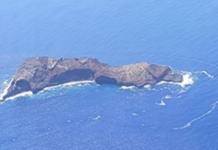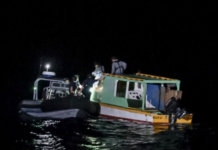Commentary – While Tonga has made notable progress in reducing multidimensional poverty, deep-rooted economic hardship and systemic legal inequalities remain key factors pushing some citizens to seek opportunities abroad—sometimes leading them to overstay their visas in countries like New Zealand.

Tongan travellers to New Zealand have been listed as having the highest rate of visa overstays for the period ending July, according to a new report from Immigration New Zealand (INZ). However, the authority was quick to note that the overall rate remains very low.
The Eke government has recently announced that 500 families have been identified as living in housing conditions so substandard that they are deemed unfit for human habitation.
A report based on Tonga’s 2021 Household Income and Expenditure Survey (HIES) reveals a complex picture. Although the nation successfully eradicated extreme poverty and saw its overall multidimensional poverty rate fall from 27% to 24% between 2015 and 2021, a significant portion of the population continues to struggle.
Crucially, the data shows that 20.6% of Tongans still live below the minimum standard required to meet their basic consumption needs. Parliament was told last year that the actual rate of people living under the poverty line had increased, putting the number at 25%.
The opposition criticised the then-government for allocating only $1 million to address the issue.
Barred from Inheritance by Law
This economic pressure is compounded by longstanding structural issues. Tonga’s inheritance and land tenure laws, which prohibit women from owning land, play a significant role.
The laws stipulate that upon a father’s death, all assets—including land, the family home, and belongings—automatically transfer to the eldest son.
This system disenfranchises women entirely and often forces younger sons to seek alternative living arrangements if the family land is insufficient to share.
This traditional and, in the view of many, unjust societal construct adversely impacts the commoners or ordinary people, creating a lack of long-term security and limiting economic mobility for a large part of the population.
No Welfare State, but Royalty Receives Stipends
Furthermore, Tonga lacks a social welfare system similar to New Zealand’s, which provides financial assistance to unemployed citizens and residents.
This absence of a public safety net exists alongside state expenditures for the monarchy, including the king and 33 noble titles, who receive annual stipends from the government.
Together, these push factors help explain why some Tongans, once granted visas to work or visit in more prosperous countries, choose to overstay despite the risks.
The chance to earn higher wages, own property, and build a secure future for their families can outweigh the fear of penalties, illustrating how domestic challenges are a direct driver of migration-related issues like visa non-compliance.
New Deportation Powers Threaten Diaspora
The recent announcement from Immigration New Zealand, which will allow the deportation of serious criminals who have been permanent residents for up to 20 years (doubled from 10), adds another layer of complexity for the Tongan diaspora, reminding migrants of the precarious nature of their status when seeking a better life abroad.
The statistics showed the top nationality of overstayer based on the past 30 years of data was Tonga, followed by China, then the United States.
- Tonga: 2599
- China: 2577
- US: 2213
- Samoa: 1697
- India: 1582
- Great Britain: 1256
- Philippines: 938
- Malaysia: 753
- Canada: 510
- Germany: 498
- Other: 6356
Persecution, Law, and Seeking Refuge
Push factors include human rights issues, with many gay and trans people seeking opportunity in New Zealand. This is due to a legal contrast; New Zealand has protections for LGBTQ+ rights, while Tongan law criminalises consensual same-sex relations.
As Kaniva News recently reported, a Tongan woman was granted refugee status in New Zealand due to the persecution she would face in Tonga because of her lesbian identity, where same-sex relationships are illegal and can lead to jail time.
This case highlights the ongoing challenges for LGBTQ+ individuals in Tonga and their need for protection in countries like New Zealand, which has a history of protecting such individuals through its refugee system and is a globally recognized LGBTQ-friendly country







